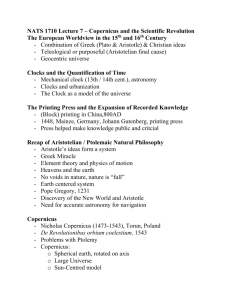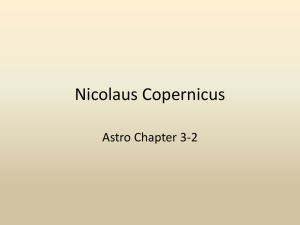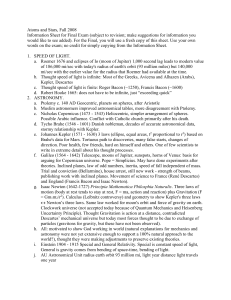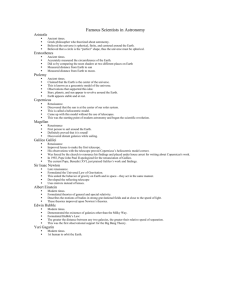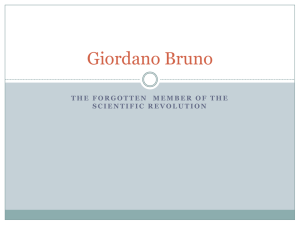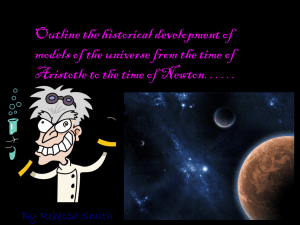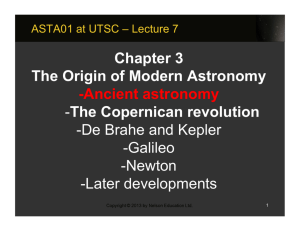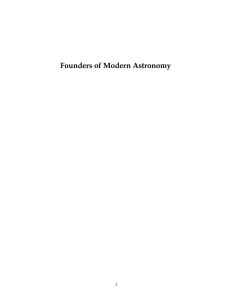Field of subject: the Scientific Revolution
advertisement
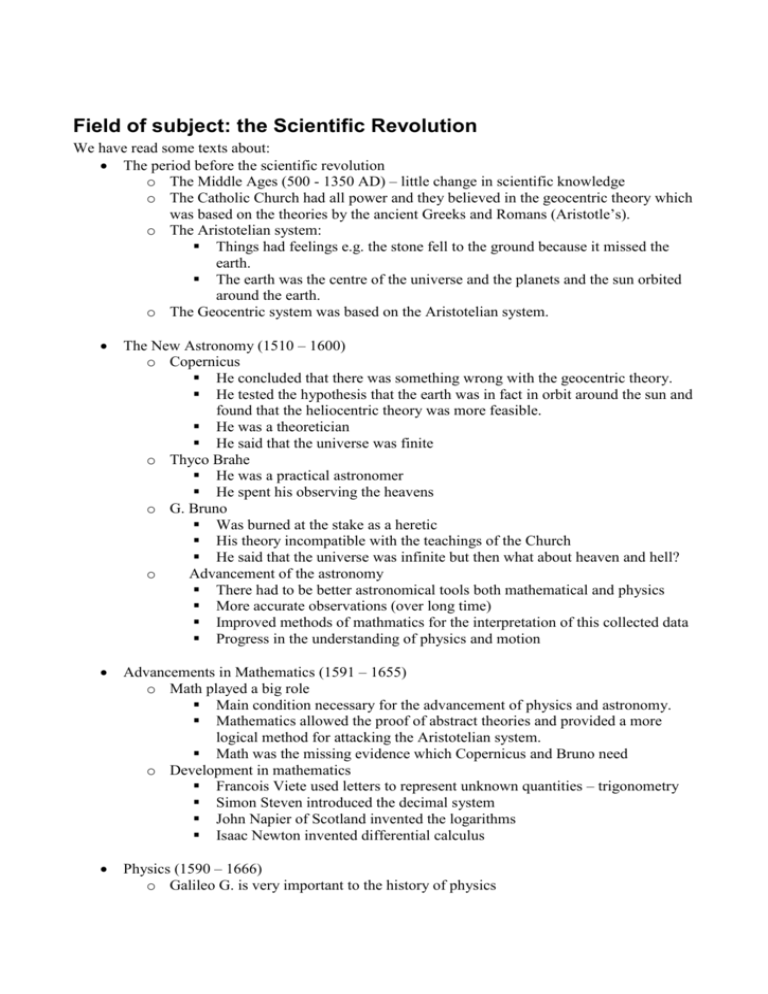
Field of subject: the Scientific Revolution We have read some texts about: The period before the scientific revolution o The Middle Ages (500 - 1350 AD) – little change in scientific knowledge o The Catholic Church had all power and they believed in the geocentric theory which was based on the theories by the ancient Greeks and Romans (Aristotle’s). o The Aristotelian system: Things had feelings e.g. the stone fell to the ground because it missed the earth. The earth was the centre of the universe and the planets and the sun orbited around the earth. o The Geocentric system was based on the Aristotelian system. The New Astronomy (1510 – 1600) o Copernicus He concluded that there was something wrong with the geocentric theory. He tested the hypothesis that the earth was in fact in orbit around the sun and found that the heliocentric theory was more feasible. He was a theoretician He said that the universe was finite o Thyco Brahe He was a practical astronomer He spent his observing the heavens o G. Bruno Was burned at the stake as a heretic His theory incompatible with the teachings of the Church He said that the universe was infinite but then what about heaven and hell? o Advancement of the astronomy There had to be better astronomical tools both mathematical and physics More accurate observations (over long time) Improved methods of mathmatics for the interpretation of this collected data Progress in the understanding of physics and motion Advancements in Mathematics (1591 – 1655) o Math played a big role Main condition necessary for the advancement of physics and astronomy. Mathematics allowed the proof of abstract theories and provided a more logical method for attacking the Aristotelian system. Math was the missing evidence which Copernicus and Bruno need o Development in mathematics Francois Viete used letters to represent unknown quantities – trigonometry Simon Steven introduced the decimal system John Napier of Scotland invented the logarithms Isaac Newton invented differential calculus Physics (1590 – 1666) o Galileo G. is very important to the history of physics o Developed a number of criticisms of the Aristotelian system’s view of the physical world “The law” He showed how gravity worked Started to do experiments He demonstrated that the acceleration (gravity) didn’t depend on the mass of the object (1pound, 100pound) Physicists’ practical inventions The telescope and microscope the barometer air pump Isaac Newton (1687) o “If I have seen farther than others, it is because I was standing on the shoulders of giants” - Newton tried to tell others that the only reason he managed to discover the things he did was because others had done all the fundamental work. Nicolas Copernicus sugested flaws in the ancient world belief. Giordano Bruno claimed the universe wasn't like the ancients and the church believed (Got burned) Kepler; reduced the motions of planets to intelligble matematical rules. Galileo developed the system of earthly mechanics that he hinted might be applied to the heavens. The Royal Society (1662 – 1700) o The best scientists in Europe o It was a place to gather theories and ideas having feedback o The scientists had to bring their own theories not just old theories o Everything went quicker when they were able to work together. Prevailing Superstition (1550 – 1700) o The scientific revolution had little impact on the normal person The four humors, the human body containd 4 major fluids: Blood Yellow bile Black bile Phlegm Too much or too less resulted in illness o There was no mass accessible data o People weren't able to read o No newspapers Scientific Methods o Identifying a Question o Forming a Hypothesis o Testing a Hypothesis o Analyzing Results o Drawing a Conclusion
